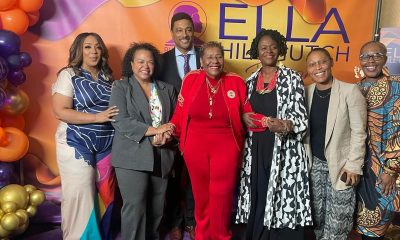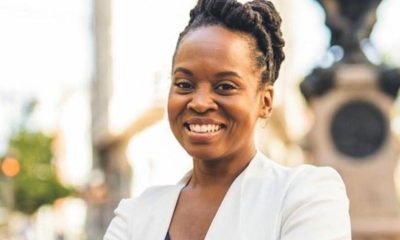Education
OUSD Consultant Lance Jackson’s Company Sued in Corruption Scandal
The Oakland Unified School District (OUSD) is paying consultant Lance Jackson to head its Facilities Planning and Management Department through the district’s contract with Seville Group Inc. (SGI), while Jackson continues working as an executive of the company, whose owner, along with school board members and a superintendent of schools, pleaded guilty in a corruption scheme in a Southern California school district.
<p><p><p><p>
The criminal prosecutions are over, but lawsuits against Seville that came out of the case are slowly moving ahead. Sweetwater Union High School District and San Diegans for Open Government are suing Seville, along with another company, to return $26 million on the grounds that their contracts with the school district were “tainted,” by bribing public officials, and therefore invalid.
In the widely publicized case, which finally concluded last year, a school board member went to jail and a number lost their positions. The district’s superintendent went to jail and paid a fine.
According to the San Diego County District Attorney’s Office, “Between 2008 and 2011, the defendants frequented San Diego-area restaurants with contractors and others racking up hundreds of dollars in food and drinks at a time, in some cases reaching more than $1,000 per outing. Defendants were given Los Angeles Lakers playoff tickets, concert tickets, theater tickets, Rose Bowl tickets, Southwest Airlines tickets and trips to Pebble Beach and Napa Valley.”
The owner and president of Seville, Rene Flores cooperated and testified for the prosecution. He pleaded guilty to a misdemeanor and was on informal probation until June 20, 2014.
In addition to his interim consulting position in the school district, Jackson serves as Chief Operating Officer of Seville, part of the company’s seven-member executive leadership team.
Seville receives $30,000 a month, an equivalent of $360,000 a year, for Jackson’s services to OUSD, part of the company’s contract to provide construction management services to the district.
Jackson’s position with the company goes back to 2002, according to Bloomberg.
Seville has a nearly $11 million, three-year contract to provide project management oversight of OUSD’s construction projects. Jackson was hired by the school district as the interim replacement for Tim White, who was forced out of his $156,000-a-year position as head of Facilities Management in February after 14 years in the district.
Seville is being paid for Jackson’s work from school bond funds for what the district estimates is 75 percent of the work that Tim White was doing. As head of Facilities Planning and Management, Jackson oversees the expenditure of at least $435 million in taxpayer bond money.
The Southern California lawsuits are seeking the return of $26 million that SGI of Pasadena and Gilbane of Providence, R.I., received to oversee the Sweetwater district’s $644-million voter-approved Proposition O bond program and a part of an earlier bond program.
“It was filed to recoup some of the bond (management) fees that we paid,” said Manny Rubio, public information officer of the Sweetwater school district in an interview with the Post.
State law – Government Code 1090 – prohibits officials from entering into a contract in which they have a financial interest and nullifies contracts made in violation of that law.
“The facts really aren’t in dispute. The people that received the gifts admit receiving them. Those that gave the gifts admit giving them,” said John Moot, outside legal counsel for Sweetwater, speaking in an interview with the newspaper U-T San Diego.
Responding to the lawsuit, lawyers for the contractors, Gilbane and Seville, said the district attorney’s charges were inflated, and the gifts to public officials were constitutionally protected free speech.
“Despite the rhetoric and rampant media coverage, the meager slaps on the wrist that flowed from the prosecution utterly belie (the D.A.’s) claims and prove the criminal charges were overblown and lacked evidentiary support,” the two companies’ lawyers said in court papers.
In rejecting one of the defendants’ claims, a San Diego judge in December 2014 ruled that the meals, trips and gifts were criminal acts and not constitutionally protected free speech.
Judge Eddie Sturgeon said the law that the contractors cited did not apply if the conduct was illegal. He wrote that the gifts were clearly meant to influence the decisions of the school officials, and the guilty pleas of the contractors and officials confirmed that what they did was illegal, according to UT-San Diego.
OUSD spokesperson Troy Flint responded to the Post’s questions about the hiring of Lance Jackson and the payments to SGI in light of the ongoing Southern California lawsuits.
“When we appointed Lance to his current position, we were aware of the investigation in San Diego,” Flint said. “We reviewed the matter to the best of our ability, and we determined that Lance was not involved in any way.”
He continued: “We retain our confidence in Lance based on that review and the caliber of work he’s done for us. We won’t hold what appear to be the actions of a few bad apples against Lance.
“Our work with SGI in general, and with Lance in particular, has been above board and extremely satisfactory. What the owners of the company may or may not have done in Southern California is not reflected in the work with OUSD or in Lance’s performance.”
Attorney Cory Briggs of San Diegans for Open Government told the Post that a trial or settlement to the case may be a year-and-a-half away. “If there’s a conflict of interest, (the companies) have to repay everything they’ve been paid,” he said.
The Post requested but at press time had not received comments from OUSD Board President James Harris or other board members, Lance Jackson or Supt. Antwan Wilson. General Counsel Jacqueline Minor was contacted but was out of the office.
Activism
A Student-Run Group Provides Critical Support Services to Underserved Residents
Those visiting The Suitcase Clinic can get legal advice, sign up for food assistance, receive housing resources, get medical help, or enjoy a hot, fresh meal. They can also get haircuts and foot washes from the student volunteers. Nilo Golchini, executive director of the clinic, said one of the goals for most of the students working there is helping bridge the gap of trust that exists between many unhoused people and the healthcare and social welfare systems.
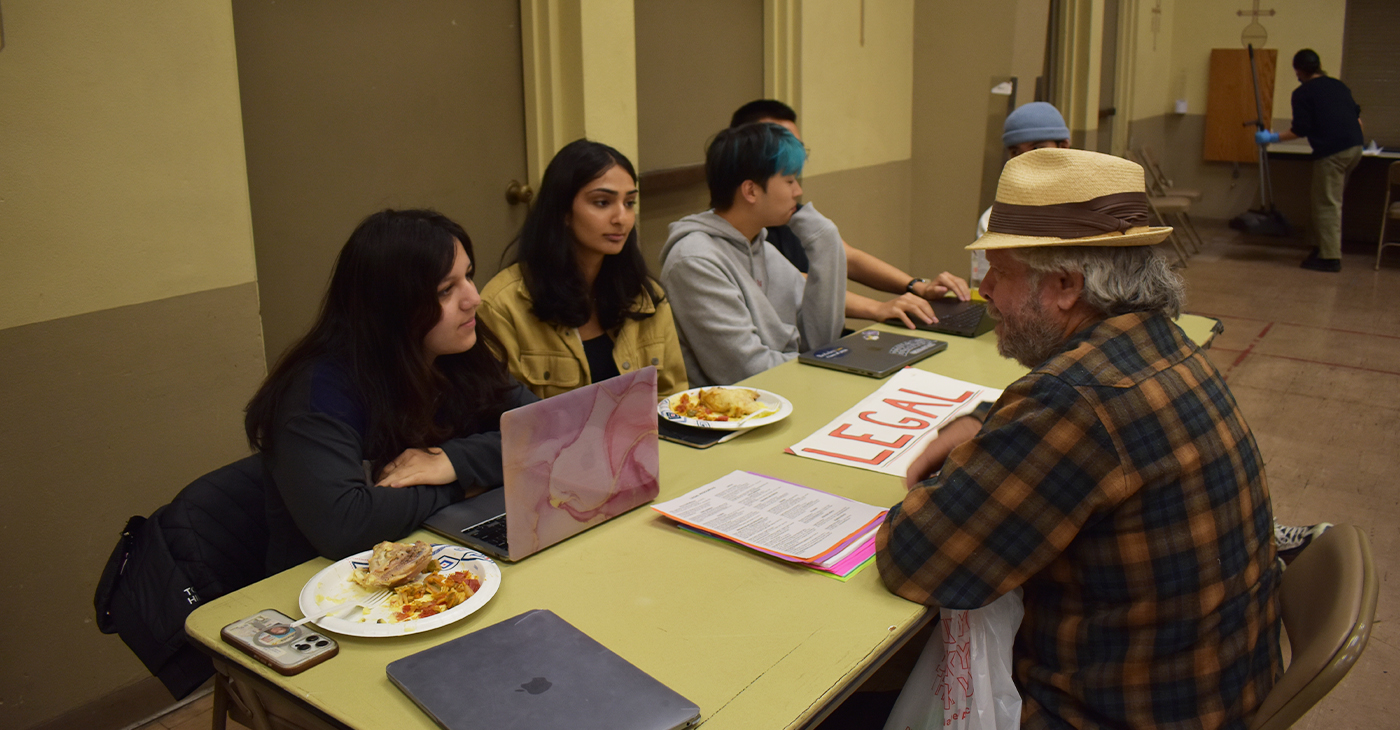
Part One
By Magaly Muñoz
Every Tuesday evening, the dining hall of First Presbyterian Church fills up with dozens of people eating, laughing and moving from table to table, receiving much-needed services from UC Berkeley students – just a few blocks away from the university’s campus.
Individuals seeking support services can be found in this multi-stationed room on the south end of the church talking to law students, student case managers, or receiving medical attention in a corner by healthcare professionals.
This weekly event is hosted by Cal students through a volunteer-run program called The Suitcase Clinic.
The clinic, founded in 1989, was intended to offer free resources to underserved communities in Berkeley and surrounding cities. The majority of the clinic’s clientele are unhoused or low-income people looking for extra support.
Those visiting the clinic can get legal advice, sign up for food assistance, receive housing resources, get medical help, or enjoy a hot, fresh meal. They can also get haircuts and foot washes from the student volunteers.
Nilo Golchini, executive director of the clinic, said one of the goals for most of the students working there is helping bridge the gap of trust that exists between many unhoused people and the healthcare and social welfare systems.
During their tenure in the program, many of the students say they become strong advocates for homelessness rights.

Visitors of the Suitcase Clinic can receive haircuts and foot washing by student volunteers every Tuesday evening. Photo by Magaly Muñoz.
“We’re also standing in solidarity with them. So, it’s not saying, ‘I’m going to help you, but I’m also going to stand with you,’” Golchini said.
Student volunteers get extensive training prior to working directly with clients. Those interested have to take a semester-long class to become versed in areas such as outreach, intersectionality, how to interact with unhoused people, how to sign people up for social services. and more.
Volunteers then get to pick from three different clinics: General, Women’s, or Youth and LGBTQ+.
The General Clinic is the most popular among visiting residents, while Women’s and Youth/LQBTQ+ have more specialized services for attendees.
The Women’s Clinic has many of the similar services to General, but also includes nail painting, childcare, and massages.
The Youth and LGBTQ+ Clinic offers a safe space for young people navigating living on the streets, with services that include housing referrals, wellness and recreation classes and employment resources.
Golchini explained that it’s important for them to keep these clinics separate because the different demographics experience poverty and homelessness differently than those who visit the General Clinic.

Suitcase Clinic student workers posing for a photo with a frequent clinic attendee. The Clinic is open to Berkeley unhoused and low-income residents who need medical or legal service, or a hot meal. Photo by Magaly Muñoz.
“We’re able to provide spaces where people can come in and feel safe and not feel like they’re constantly worried that something’s going to happen to them,” she said.
An outreach team also visits encampments every other Saturday in the Berkeley area to provide hygiene kits and encourage people to visit the in-person clinic, if possible.
However, Golchini said engagement has been low for some time now due to a recent decision by the U.S. Supreme Court that allows cities to ban and cite people for sleeping on the streets.
She said a lot of their clientele got displaced to other cities over time, making it difficult to stay in contact with the services the Clinic was providing for them.
But that hasn’t slowed down the students at the Clinic, if anything, it has pushed them to do more for the community they serve.
Activism
Self-eSTEM Empowers BIPOC Women, Girls in Science, Math
In January 2025, Self-eSTEM will launch digital and generative AI programming, which provides digital literacy and AI literacy training through an entrepreneurial project-based activity. This programming will be a hybrid (i.e. in-person and online). Additionally, thanks to a grant from Comcast, in spring 2025, the organization will have a co-ed series for middle and high school students.
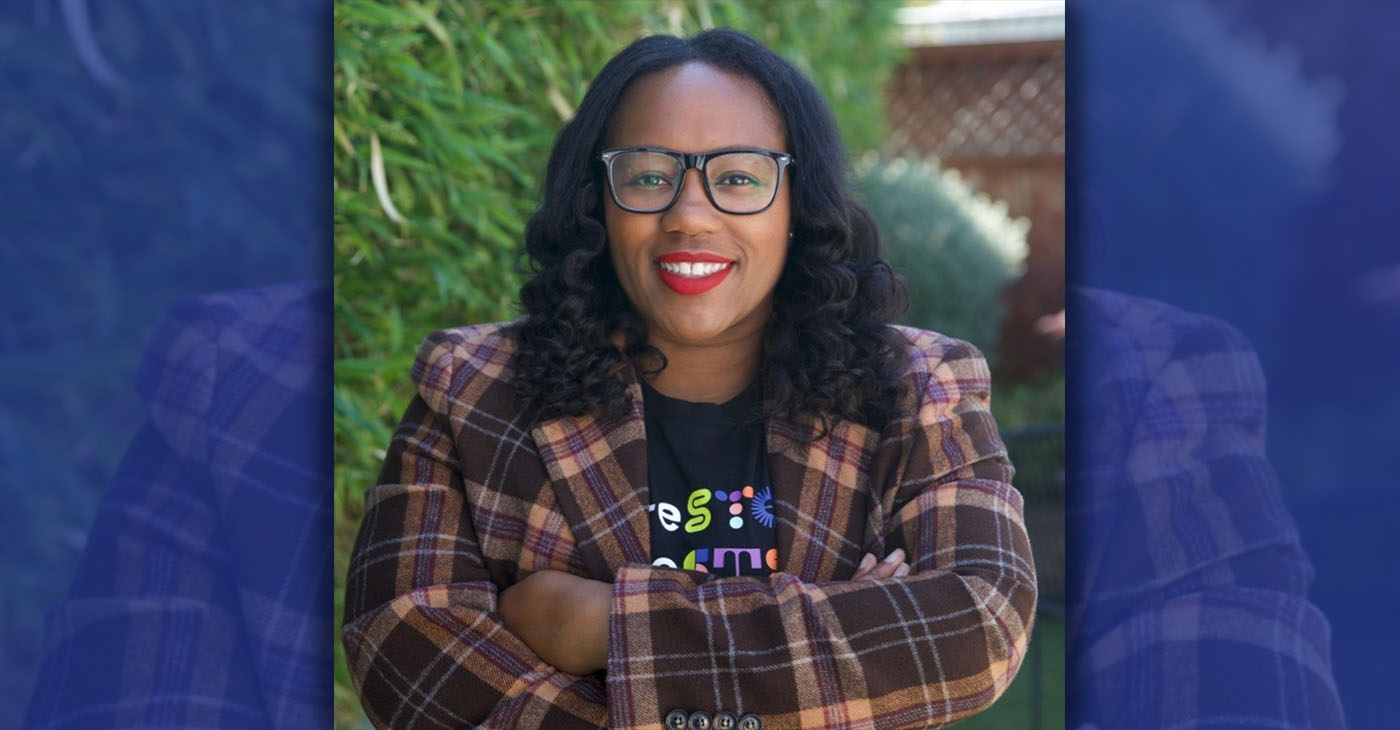
By Y’Anad Burrell
Special to The Post
In a world where technology plays an increasingly central role in all aspects of life, the importance of Science, Technology, Engineering, and Math (STEM) education cannot be overstated. Recognizing the significance of STEM for the future, focusing on young women and girls is a critical step in achieving gender equality and empowering the next generation.
Self-eSTEM, an Oakland-based non-profit organization, was founded by Adamaka Ajaelo, an Oakland native who had a successful corporate career with several Bay Area technology and non-tech companies. Ajaelo boldly decided to step away from these companies to give 100% of her time and talent to the non-profit organization she started in 2014 in the belief that she can change the game in innovation and future STEM leaders.
Over the course of a decade, Ajaelo has provided futurist tech programming to more than 2,000 BIPOC women and girls. The organization has an Early STEM Immersion Program for ages 7-17, Emerging Leaders Workshops for ages 18-25 and volunteer network opportunities for ages 25 and up.
In January 2025, Self-eSTEM will launch digital and generative AI programming, which provides digital literacy and AI literacy training through an entrepreneurial project-based activity. This programming will be a hybrid (i.e. in-person and online). Additionally, thanks to a grant from Comcast, in spring 2025, the organization will have a co-ed series for middle and high school students.
While the organization’s programs center on innovation and technology, participants also gain other valuable skills critical for self-development as they prepare for a workforce future. “Self-eSTEM encourages young women to expand on teamwork, communication, creativity, and problem-solving skills. The organization allows young women to enter STEM careers and pathways,” said Trinity Taylor, a seventh-year innovator.
“Our journey over the last decade is a testament to the power of community and opportunity, and I couldn’t be more excited for what the future holds as we continue to break barriers and spark dreams,” said Ajaelo.
“By encouraging girls to explore STEM fields from a young age, we foster their intellectual growth and equip them with the tools needed to thrive in a competitive global economy,” Ajaelo says.
Empowering young girls through STEM education is also a key driver of innovation and progress. When young women and girls are encouraged to pursue careers in STEM, they bring unique perspectives and problem-solving approaches to the table, leading to more diverse and inclusive solutions. This diversity is crucial for driving creativity and pushing boundaries in scientific and technological advancements.
Self-eSTEM has fundraising opportunities year-round, but year-end giving is one of the most critical times to support the program. Visit www.selfestem.org to donate to the organization, as your generosity and support will propel programming support for today’s innovators.
You will also find more details about Self-eSTEM’s programs on their website and social channels @selfestemorg
Black History
Percy Lavon Julian: A Trailblazer and Business Titan in Chemical Innovation
Born in Montgomery, Ala., in 1899, Percy Lavon Julian grew up during a time when educational opportunities for African Americans were severely limited. Despite these challenges, his parents — graduates of what later became Alabama State University — instilled in their children a deep belief in the power of education. Julian excelled academically, graduating valedictorian at Indiana’s DePauw University in 1920.
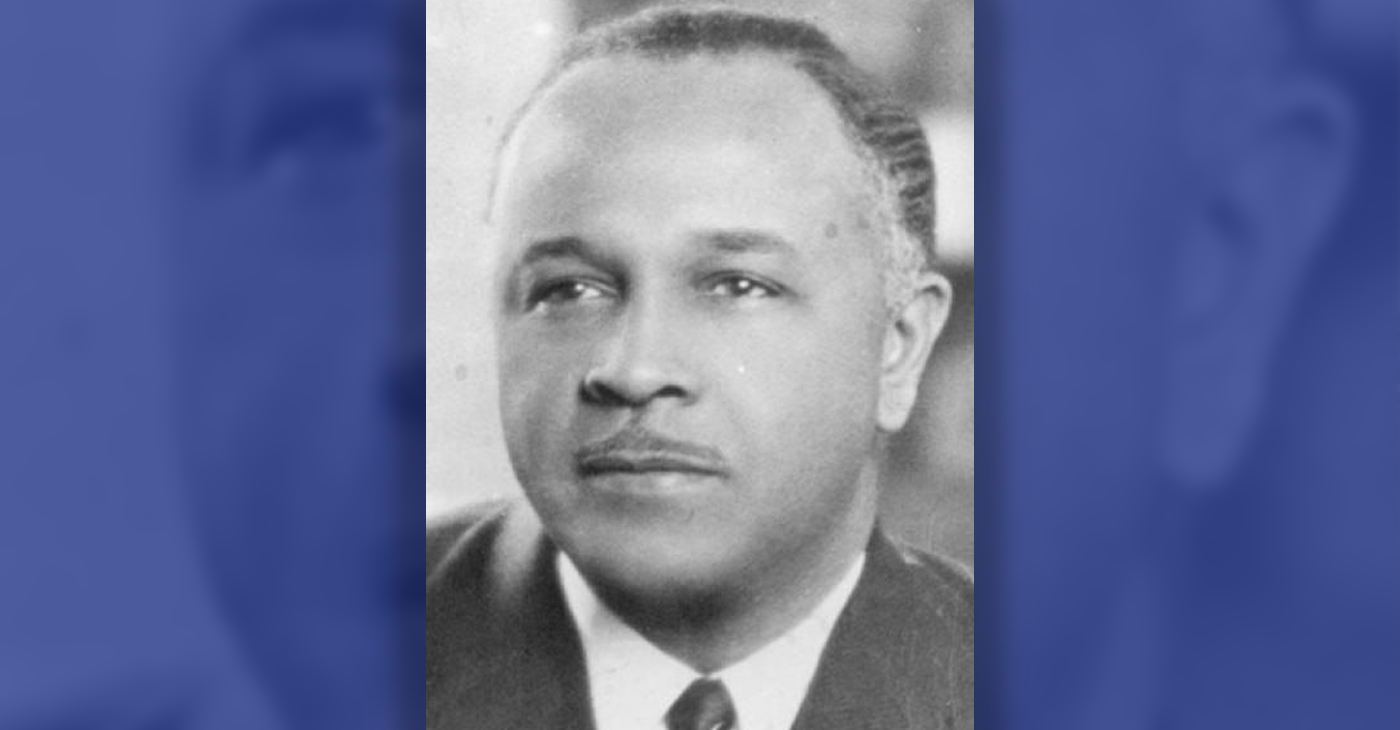
By Tamara Shiloh
Percy Lavon Julian was a brilliant American chemist and businessman whose groundbreaking discoveries transformed the pharmaceutical industry.
Known for his innovative work in synthesizing medicinal drugs from plants, he was a pioneer who opened new doors in chemical synthesis. One of Julian’s most notable achievements was being the first to synthesize physostigmine, a natural product used to treat glaucoma. His groundbreaking methods for producing human hormones like progesterone and testosterone from plant sterols revolutionized the steroid drug industry. These methods paved the way for the affordable production of life-saving medications such as cortisone, corticosteroids, and artificial hormones for birth control.
Born in Montgomery, Ala., in 1899, Julian grew up during a time when educational opportunities for African Americans were severely limited. Despite these challenges, his parents — graduates of what later became Alabama State University — instilled in their children a deep belief in the power of education. Julian excelled academically, graduating valedictorian at Indiana’s DePauw University in 1920. While his dream was to pursue a doctorate in chemistry, racial barriers initially stood in his way. Undeterred, he eventually earned his Ph.D. from the University of Vienna in 1931, becoming one of the first African Americans to achieve this milestone.
Returning to the United States, Julian faced discrimination that made it difficult to secure academic or research positions. Despite being denied jobs due to his race — even from prestigious companies like DuPont — he persevered. His big break came at the Glidden Company, where he led the Soy Products Division. At Glidden, Julian spearheaded several important projects. He developed the world’s first plant for industrial-scale production of isolated soy protein, which served as an affordable alternative to milk in various products. During World War II, his refined soy protein was used to create Aer-O-Foam, a lifesaving firefighting foam for the U.S. Navy. This achievement earned him the NAACP’s Spingarn Medal in 1947. Later, Julian turned his focus to synthesizing hormones from plant sterols, revolutionizing the production of cortisone and other critical medications. His cost-effective methods made these treatments more widely available, improving the lives of countless patients worldwide. Eventually, he founded Julian Laboratories, Inc., solidifying his legacy as a leader in steroid chemistry and pharmaceutical innovation. Julian Laboratories chemists found a way to quadruple the yield on a product on which they were barely breaking even. Julian reduced their price per kg for the product from $4,000 to $400. He sold the company in 1961 for $2.3 million (equivalent to $23 million today) and became one of the first Black millionaires.
The U.S. and Mexico facilities were purchased by Smith Kline, and Julian’s chemical plant in Guatemala was purchased by Upjohn. In 1964, Julian founded Julian Associates and Julian Research Institute, which he managed for the rest of his life.
Julian also helped to establish the Legal Defense and Educational Fund of Chicago.
-

 Activism4 weeks ago
Activism4 weeks agoOakland Post: Week of November 20 – 26, 2024
-

 California Black Media3 weeks ago
California Black Media3 weeks agoCalifornia to Offer $43.7 Million in Federal Grants to Combat Hate Crimes
-

 Activism4 weeks ago
Activism4 weeks agoAn Inside Look into How San Francisco Analyzes Homeless Encampments
-

 Black History3 weeks ago
Black History3 weeks agoEmeline King: A Trailblazer in the Automotive Industry
-

 California Black Media3 weeks ago
California Black Media3 weeks agoCalifornia Department of Aging Offers Free Resources for Family Caregivers in November
-

 California Black Media3 weeks ago
California Black Media3 weeks agoGov. Newsom Goes to Washington to Advocate for California Priorities
-

 Activism3 weeks ago
Activism3 weeks agoOCCUR Hosts “Faith Forward” Conference in Oakland
-

 #NNPA BlackPress4 weeks ago
#NNPA BlackPress4 weeks agoPRESS ROOM: Clyburn, Pressley, Scanlon, Colleagues Urge Biden to Use Clemency Power to Address Mass Incarceration Before Leaving Office


